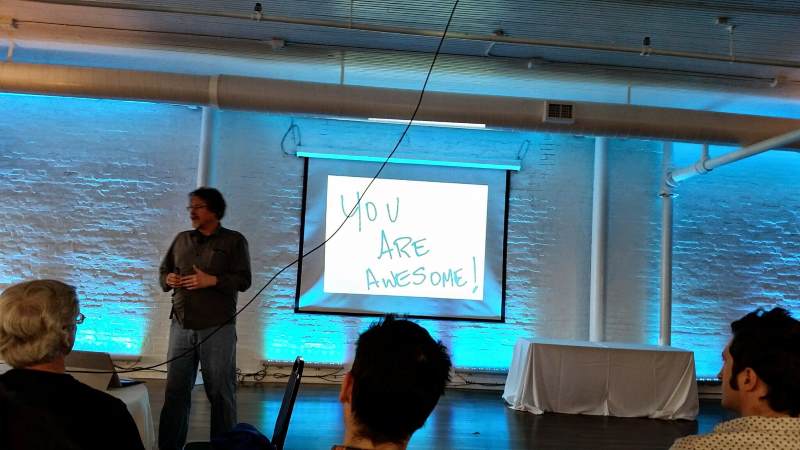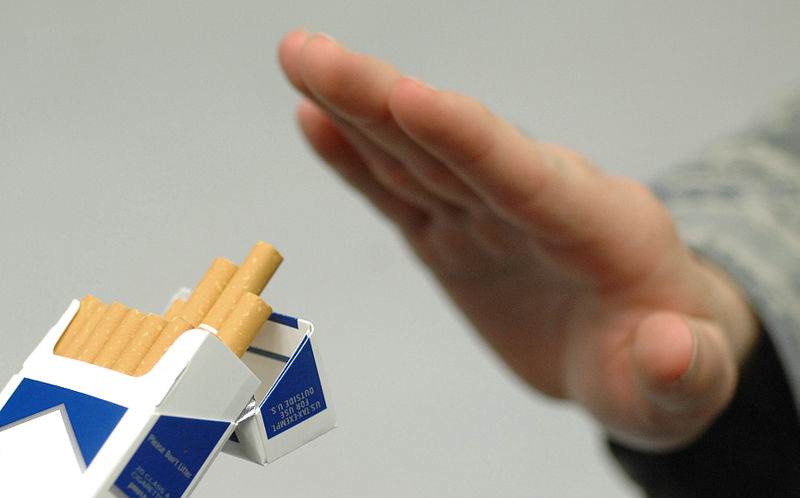This is a long story. I have never written it down before or told it in its entirety because I never really saw it as worthwhile to do so. However, recently I have learned some new lessons and have come to realise that sharing this might be useful to me and perhaps others. So, take a comfortable seat and I shall begin.
In the beginning…
When I was very young, I remember taking a puff on my Uncle Jeff's pipe. The sweet smell of pipe tobacco, both before and after it was alight, and the mischievous nature of my uncle were enough to lure me in. One attempt at smoking it was enough to put a stop to that nonsense and I vowed I would never smoke again.
What the hell did I know? I was just a kid.
When I was around nine or ten and with my memories of early pipe experimentation faded, a friend and I discovered a pack of cigarettes on the stairs of my house. It had been left there by a contractor who was doing some building work for my parents. My friend and I had often pretended to smoke by lighting dried bracken stalks (we never inhaled – goodness knows what carcinogens are in that smoke), but now we had the opportunity to try the real thing. It only took a brief tête-à-tête to convince each other we should take one.
Later that afternoon and with a pack of matches from by the fireplace, we went for a walk down the fields. Once we felt we were secluded from prying eyes, we lit the cigarette. I do not recall who went first, but I do recall that whomever it was, their coughing and watering eyes did not deter the other. As we played it cool, denouncing tobacco as "no big deal", the cigarette was stomped out and we walked home again.
And that was that. For years, that was that. Even though my grandmother and her cousin had smoked around me for many years. Even though my uncle smoked his pipe. Even though a number of my cousins smoked, and people my parents knew smoked, and I often encountered smokers when out and about, that was that. Smoking was not for me.
Social Smoker
And then I started working at my local pub. Some of the friends I had smoked and so, when we were out drinking, I would occasionally have one. I was a social smoker. No big deal. I just had one every now and then. I was not addicted, it was just fun. One, maybe two cigarettes a month. No big deal.
That continued through my early years at university until 2000, my graduation year. In 1999, I had moved in with a drug dealer. This was not my plan, I should note, it just was. My landlord from the previous year had offered me a spare room in this house and it was already occupied by two friendly girls and a drug dealer. The girls moved out within two days of my moving in. They knocked on my door the day before they left to let me know that it was not my fault and that they really liked me, but that drug dealer guy, yeah, he was something else. They had to leave. And so they did. Shortly thereafter, one of the drug dealer's friends moved in. A few months later, everyone but me moved out.
There are many stories from that final year, including some that I am unlikely to share. As I think back, 2000 turned out to be quite eventful for me. I graduated university, got my first mobile phone, lost my virginity (I was always a "late bloomer", as some say), lived with a drug dealer, and started smoking.
Before the drug dealer and his friend moved out, there were many nights of watching movies and smoking in the lounge of our house. When you live with someone, you overlook some things in order to have a peaceful existence, and so I overlooked some things. At some point, during this, I started smoking. I guess I felt it was better to actively smoke my own rather than passively smoke theirs. Whatever it was, by the time May rolled around, I was alone in the lounge, in the whole house, smoking.
I tried to quit. I figured I had only started in February so surely I can just quit. I was only smoking five or ten cigarettes a day. Quitting would be easy. Little did I know that after four months of smoking, it would take me years to quit. I was an addict, regardless of whether I acknowledged that or not.
Addicted
Many times I tried to quit. Before I started my first job out of university, I quit. I even advertised "non-smoker" on my CV as if that would somehow make me stand out. Only a week or two into the job, I was smoking again.
I quit using nicotine patches, then started smoking while wearing the patches.
I quit cold turkey, then slipped up having a beer one night and let guilt side with my addiction in the morning.
I quit and quit and quit. Each time, the addiction seemed to come back stronger than before. Like a friend, it was always there when things were difficult, stressful, or uncomfortable. It could be relied upon. Each time I fell back into its embrace I would be disgusted with myself to the point that I would squeeze harder, searching for some comfort. What a terrible thing, addiction.
In early 2005, an opportunity arose to try a job in the US and so I did. Eighteen months later, after talking about it with some good friends, reading the autobiography of a quadriplegic alcoholic, and reviewing all the ways I had failed to quit before, I decided to quit again. This time I signed up to a smoking cessation website, listened to a self-hypnosis MP3, and started using nicotine gum.
I had my last cigarette on August 31st, 2006. I know because, after finishing the autobiography, reciting the serenity prayer to myself, and having one last cigarette on the balcony of my apartment, I wrote the date down. This was a lesson I had learned from trying to quit before.
1. Remember when you stopped smoking and why
Before, after about three months, complacency had set in. I had beaten this addiction. I could control it. So, one cigarette won't hurt. But it will, every time. By writing down the date, committing it to memory, I was always able to remember when it was and recall all the effort, as well as calculate how much money I had saved. By writing down why I quit, I could remind myself of what the effort was for and why it mattered.
For those first few weeks I was a grumpy, short tempered arse. I could not help it. I warned friends and coworkers what to expect. They were incredibly supportive. This was another lesson.
2. Tell people you stopped smoking
It was important that people knew so that they could be supportive. They could give me some slack when I got a bit ratty and they could keep me honest when I came close to having a smoke.
The nicotine gum really helped with this too. By using gum, I was able to keep my smoke break routine, get a hit of nicotine, and avoid smoking. Another rule.
3. Keep the challenge small
In the past, I had tried to change too much. For example, to avoid gaining weight (a common occurrence when giving up smoking), I would commit to working out more and dieting while trying to quit. However, bundling things like this is a terrible strategy because failure of one tends to cause failure of the others. All paths would lead back to smoking.
Of course, that didn't mean I had to do everything else the same. There were triggers to smoking. Times when smoking would come to mind more strongly than others. All my failed attempts at quitting had highlighted some of my triggers. It turned out that all those failed attempts were actual lessons on how to quit.
4. Learn your triggers
By analysing my previous attempts to tackle my addiction, I was able to identify my triggers, such as,
- Going out drinking
- Coffee breaks
- Leaving the gym
- Driving
- Boredom
And so, with nicotine gum, supportive friends, and effort, I stopped smoking. Until I had another cigarette while visiting the UK. I was drinking at my local pub (a trigger) and a neighbour had a smoke. I asked him for one. He refused, saying I had quit. I pressed him and he gave in. It was not his responsibility to stop me smoking, it was mine and I failed. I enjoyed that cigarette as I walked home. However, unlike other times, when I awoke in the morning I remained smoke free.
5. Accept that mistakes do not mean failure
A terrible aspect of nicotine addiction (and I suspect addictions in general) is that addicts punish themselves over any slip or fall, which causes them to run into the arms of the only friend they can rely on, their addiction. It's vicious and if you are not looking out for it, inevitable.
You have to allow yourself to be fallible and accept that you will screw up. Whether it is relationships, your addiction, or some other aspect of life, you will screw up. Changing my mindset to accept that I might slip up but not allowing it to derail my effort was one of the most difficult things to do, but ultimately, it is possibly the biggest aspect of coping with addiction.
By the end of August 2013, I had been almost entirely smoke free for six years. It was great.
An old familiar friend
By now, you might think you know where this is headed and in part, you could be right. The end of 2013 was pretty rough. We had a terrible winter and I was suffering from depression. This ultimately led to me doing something I should have done years before. I sought help and entered therapy. As 2014 drew on, I delved deeper into what made me tick, why I did the things I did and felt the way I felt. It was liberating and emotional and terrifying.
Without really noticing, I turned to an old familiar friend. It started much the same way as before. I tried a cigarette while out with friends (a trigger) and hated it, but I knew I used to like it, so I did it anyway. Then it was just a social thing. Just one every now and then. Suddenly, a month or two ago, I was buying a pack and sneaking around to have a smoke. I convinced myself I was in control. I could stop any time. I could quit. After all, I'd done it before, hadn't I?
No. Clearly, not.
I knew it had to stop and told myself, "Today is the day I stop."
The next day, with five cigarettes left in the pack, I had one more. One wouldn't hurt right? Then I would stop.
I finished the pack and then, I stopped. My wife spoke to me about it soon after my last cigarette (you can't hide that smell, no matter how hard you try) and also, quite rightly, demanded I stop. I even spoke to my therapist about it to see if I could work out why it happened and what I needed to learn to get my addiction under control again.
So, here I am, one week in, with nicotine gum in my cheek, learning how to control my addiction. Because that is all I can hope to do, control. I will always be a nicotine addict, I just hope that I can retain control such that I can live without nicotine. Armed with all the lessons from my missteps along the way, I just might.
I hope that by sharing some of the details from my struggle with addiction in general and nicotine addiction in specific, it will be helpful to others. Perhaps some of you might like to share your own experiences with addiction in the comments. For now, this will serve as a reminder to my future self when that old familiar friend comes calling. I am Jeff, I am an addict, and I have been smoke free since December 10th, 2014.




